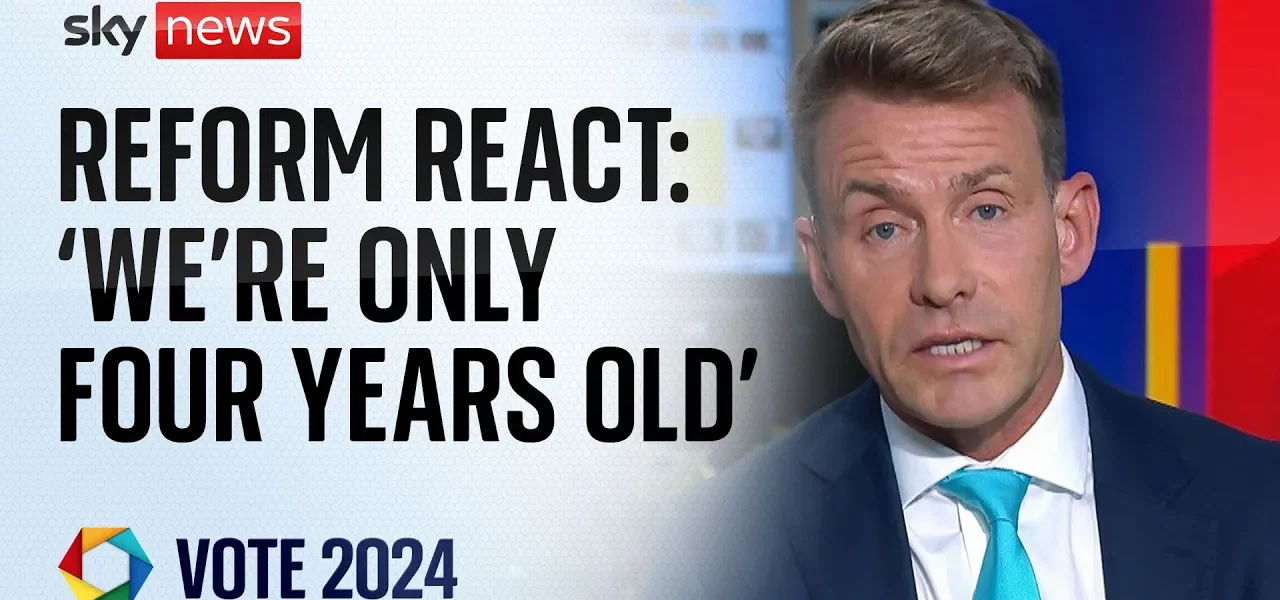Historic Night for Reform Party: 13 Seats Won in Recent Elections

In a groundbreaking political shift, the Reform Party has secured 13 seats in recent elections, marking a significant milestone for a party only four years old. This article delves into the implications of these results, the party’s strategies, and the broader context of UK politics.
Introduction
The recent electoral success of the Reform Party has sent shockwaves across the political landscape of the United Kingdom. Winning 13 seats for a relatively new political entity not only exemplifies a shift in voter sentiment but also raises critical questions regarding the effectiveness of the current electoral system. This article explores the motivations behind the Reform Party’s rise, the implications for traditional parties, and the potential future of UK politics.
The Rise of the Reform Party
Founded just four years ago, the Reform Party has positioned itself as a viable alternative to the traditional parties in the UK. Their recent electoral performance reflects a growing discontent with the status quo and a desire for change among voters. Here are several key factors contributing to their rise:
- Targeted Messaging: The party has effectively communicated its policies, focusing on low taxes, reduced regulations, and increased growth.
- Voter Dissatisfaction: Many voters feel alienated by the established Conservative Party, leading them to seek alternatives.
- Strong Leadership: The presence of high-profile figures such as Nigel Farage has helped galvanize support and attract media attention.
Electoral Performance and Vote Share
The Reform Party’s success in winning 13 seats is not just about the number but also about the vote share, which they claim is significantly higher than the Liberal Democrats. This section examines the implications of these findings:
Vote Share Analysis
Initial reports indicate that the Reform Party’s vote share may be double that of the Liberal Democrats, yet the party has only secured a fraction of the seats. This discrepancy raises important questions about the efficacy of the first-past-the-post electoral system:
- Disproportionate Representation: The current system may not reflect the true will of the voters, leading to a call for electoral reform.
- Perception of a Broken System: Many voters are expressing concerns that the political system is failing to deliver fair representation.
Political Dynamics and Party Strategy
The dynamics within the UK political landscape are changing. The Reform Party’s emergence has sparked discussions about the future of traditional political alliances:
Impact on Conservative Party
With a significant number of votes potentially drawn away from the Conservatives, the Reform Party is reshaping the political narrative:
- Fragmentation of the Conservative Vote: The Conservative Party appears to be struggling with internal divisions.
- Opportunity for Reform: The Reform Party aims to attract disillusioned Conservative voters by offering a more coherent conservative platform.
Public Perception and Voter Behavior
Understanding why some voters hesitate to publicly support the Reform Party is crucial for the party’s growth:
The Shy Reformers
Many individuals who support the Reform Party may not openly share their political preferences, which can skew public polling:
- Cultural Stigma: Some voters might feel social pressure when expressing support for a party perceived as controversial.
- Desire for Privacy: Voters often prioritize their privacy regarding political affiliations, leading to the phenomenon of the “shy voter.”
Conclusion
The Reform Party’s historic night, marked by the acquisition of 13 seats, signals a pivotal moment in UK politics. As they continue to challenge the established parties, the implications of their rise will reverberate through the political landscape. Voters are clearly seeking alternatives, and the Reform Party is positioning itself as a serious contender. For those interested in the future of political reform in the UK, staying informed about this movement is essential.
If you want to learn more about the Reform Party and its evolving role in UK politics, check out our related articles on political reform and voter dynamics.
“`




